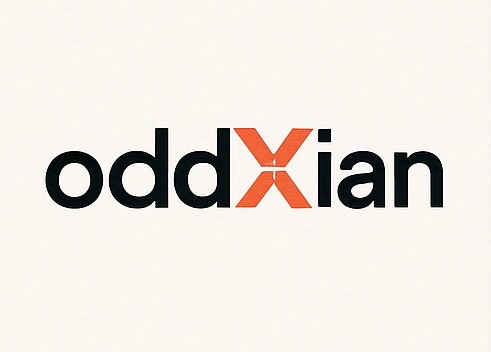Agency or Robots: Why Evil and Jesus Are Necessary
Two ancient questions challenge the coherence of Christian faith: Why does a good God allow evil? Is goodness grounded in God's command or external to Him? These puzzles—the Problem of Evil and Euthyphro's Dilemma—appear to force believers into contradiction.
Yet the logic of Christianity demonstrates that evil is not divine oversight but the necessary consequence of creating beings in God's image with genuine agency. And Jesus Christ, the God-Man, is equally necessary as the sole reconciliation of justice and mercy. The choice is stark: agency or robots.
The Imago Dei and Necessary Rebellion
Scripture declares humans are made in God's image (Genesis 1:26-27), possessing true agency and self-reliance. But authentic freedom requires the genuine possibility of rebellion.
Syllogism 0 — Imago Dei → Rebellion
P1: All image-bearers of God possess the trait of self-reliance (agency, initiative).
P2: All who possess self-reliance, by nature, resist other-rule.
B0: God's rightful rule is a species of other-rule.
C0: Therefore, all image-bearers of God necessarily resist God's rule.
Evil arises not from flawed creation but as the inevitable outcome of free image-bearers exercising self-reliance against divine rule. Freedom without this possibility would be logical contradiction—a square circle.
The Sovereign's Rightful Claim
God's nature establishes what He rightfully requires from His image-bearers.
Bridge Syllogism — God's Nature → Human Obligation
P1: God is sovereign, loving, and good.
P2: Every loving and good sovereign requires loving loyalty from subjects.
C: Therefore, God necessarily requires loving loyalty from His image-bearers.
Human rebellion thus constitutes not mere error but violation of covenantal obligation—what Augustine called turning from the Good to self-idolatry.
Dissolving Euthyphro: Goodness as Divine Nature
The Euthyphro Dilemma dissolves when we understand goodness as neither arbitrary command nor external standard, but God's essential nature expressed.
Syllogism 1 — From Right to Exercise
P1: God is sovereign, loving, and just.
P2: Every sovereign has the right of judgment and mercy.
B1: God, being perfect, fittingly enacts what belongs to His sovereign right in accord with His love and justice.
C1: Therefore, God necessarily exercises judgment and mercy in perfect love and justice.
As Aquinas argued, God is goodness itself—His commands flow from His eternal essence.
The Tension: Justice Demands, Mercy Forgives
Yet this creates apparent contradiction between God's attributes.
Syllogism 2 — What Justice and Mercy Effect
P1: Justice demands punishment.
P2: Mercy allows forgiveness.
B2: God's judgments are just and necessarily enact what justice demands.
B3: God's mercies are gracious and necessarily bestow the forgiveness mercy allows.
C2: Therefore, God's judgment necessarily brings punishment, and His mercy necessarily grants forgiveness (to many).
Here the tension sharpens: punishment and forgiveness are each necessary, yet appear mutually exclusive.
The God-Man: Reconciliation at the Cross
Only in Christ—fully God and fully man—does this paradox resolve.
Syllogism 3 — Reconciliation in the God-Man
P1: Jesus, the God-Man, is both Judge and Savior.
P2: As Judge He condemns and punishes sin for many; as Savior He bears it and mercifully forgives the sins of many.
B4: If one and the same agent both necessarily exacts just punishment for sin and necessarily bears sin to forgive many, then justice and mercy are reconciled in that agent.
C3: Therefore, in Jesus Christ the God-Man, justice and mercy are necessarily reconciled.
Evil is necessary because of the Imago Dei: self-reliant image-bearers necessarily resist God's rule. Jesus is necessary because only in the God-Man are justice and mercy reconciled: as Judge He condemns sin; as Savior He bears it. The Problem of Evil and Euthyphro's Dilemma find resolution not in abstraction but in the cross.
Objections and Responses
Objection 1: If God is self-reliant, and self-reliance leads to resisting other-rule, then God should resist authority.
Response: Category error. The premises concern image-bearers, not the Original. Divine self-reliance faces no "other" to resist.
Objection 2: Many self-reliant people freely submit to legitimate authority (parents, laws, teachers).
Response: No, they don't—not freely. Examine any apparent submission: children obey from dependency, citizens from fear of punishment, students from grade coercion. True self-reliance inherently resists other-rule.
Objection 3: Natural evil (earthquakes, disease) existed before human rebellion.
Response: Not biblically. "Through one man sin entered the world, and death through sin" (Romans 5:12). Creation groans under human rebellion.
Objection 4: How does punishing the innocent (Christ) satisfy justice rather than compound injustice?
Response: Because the innocent lawmaker graciously satisfies the law. The sovereign who establishes law has the right to bear its penalty.
Objection 5: Does grounding goodness in God's "necessary expression" truly resolve Euthyphro's Dilemma?
Response: God is inherently good. Goodness is neither arbitrary command nor external standard, but God's essential nature expressed.
The choice remains: agency with its necessary risk of evil, or robots incapable of love. At the cross, agency meets atonement, and image-bearers find redemption.


